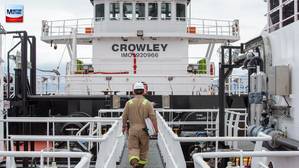Line Thrower Extends Wind Vessel Capabilities
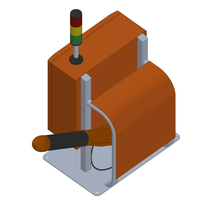
Pneumatic Line Thrower (PLT®) specialist Restech is offering service operation vessel (SOV) owners in the wind industry a preview of a new system developed to satisfy rising demands for flexibility in towing and mooring operations.A scale model of an innovative Remote Launcher TI will be on display on the VIKING Life-Saving Equipment stand (EC-40) at WindEurope 2025, held at Copenhagen’s Bella Center, April 8-10. As part of the modular design, its remotely triggered launcher will…
Procedural and Safety Failures Implicit in High-Voltage Panel Fatality

The US Coast Guard has released its report into the death of a crewmember onboard the Red Stag while moored at the Adriatic Marine Dock, in Port Fourchon, LA, on October 14, 2023. The incident occurred when an unqualified engineer (UE) opened the panel for the mud pump system and touched the high voltage conductors containing 480 volts.The 184-foot OSV moored at the dock the previous day with a crew consisting of a Master, Relief Captain and three crewmembers. The vessel had been in dry dock and had recently moved to the Adriatic Marine Dock to prepare for an upcoming work assignment…
Kongsberg Bags Equipment Supply Order for DOF’s New OSV
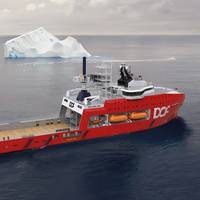
Kongsberg Maritime has secured a contract to supply an integrated package of equipment for a new Offshore Support Vessel (OSV) being built for ship owner DOF.The new 110-meter OSV, with a capacity to accommodate 164 people, is designed by MMC Ship Design and constructed at CRIST shipyard in Gdynia in Poland. The vessel will operate offshore Newfoundland, known for its harsh environmental conditions.It will be equipped with a comprehensive range of Kongsberg Maritime systems, including the DC main switchboard…
Steerprop Propulsion Chosen for Canadian OSV
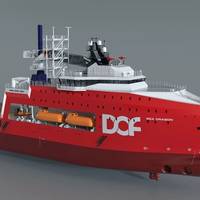
A new field support vessel being built by Crist S.A. in Gdynia, Poland, to operate on the Grand Banks off the coast of Newfoundland and Labrador, Canada, will feature a full propulsion scope from Steerprop.Vessel operating conditions on the Grand Banks are extremely challenging due to heavy seas, fog and icebergs. This emphasizes the importance of the ship’s propulsion thrusters in maintaining dynamic positioning and facilitating safe and reliable operations.Steerprop’s capabilities…
Petrobras Ups Ship Orders to 48 by 2026

Brazilian state-run oil firm Petrobras will commission four more support vessels by 2026, Chief Executive Magda Chambriard told Reuters, increasing the number of new ships aimed at supporting its operations to 48 by 2026.The reinforcement of Petrobras' fleet comes amid expectations of higher offshore oil output in the next few years as new production units come online at the Buzios field, where it expects to produce up to 2 million barrels per day by 2030.The commissioning of…
Tidewater's 2024 Net Income Jumps

Tidewater has announced that its net income for the 12 months ended December 31, 2024 was $180.7 million, compared to $97.2 million for the previous year.The company’s revenue for the three and 12 months ended December 31, 2024 of $345.1 million and $1,345.8 million respectively, compared with $302.7 million and $1,010.0 million, respectively, for the previous year.Quintin Kneen, Tidewater’s President and Chief Executive Officer, said: “2024 proved to be a successful year by all measures.
Havila Shipping Reports Stable Q4 2024 Results
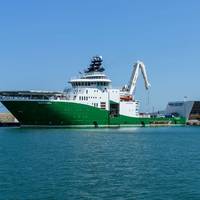
Havila Shipping ASA announces its Q4 2024 financial results, highlighting steady freight revenues, strong fleet utilization, and the successful completion of a major debt restructuring.Key Financial Highlights (Q4 2024):Freight revenues: NOK 148.0 million, consistent with Q4 2023 and up NOK 7.1 million from Q3 2024.Fleet utilization: Maintained at 92%, with a higher average rate than the previous quarter.Operating expenses: NOK 87.7 million, down NOK 1.6 million from Q4 2023 but…
Tidewater Appoints New Vice President of Marine Operations

Tidewater has appointed Chris Mack as the company's new Vice President of Marine Operations.Mack brings over two decades of industry experience to the Tidewater team.He earned his Bachelor's degree in Maritime Transportation from the California Maritime Academy and received his Master of Marine Transportation and Engineering Management from California State University Maritime Academy in 2023. He began his maritime career as an Able Seaman, progressing to the role of Captain within the Ocean Towing Fleet.
WFW Advises Eurazeo on Investment in Offshore Service Vessel Platform
Watson Farley & Williams (‘WFW’) advised Eurazeo, acting as lead investor via its Eurazeo Transition Infrastructure Fund, on a $73m investment in new offshore service vessel platform MPC OSE Offshore. The platform, a joint venture between MPC Capital and O.S. Energy, helps develop, build, and manage service support vessels for offshore wind farms. The consortium of investors comprised the European family office and others in addition to Eurazeo.A leading European investment group with $37bn AUM, Eurazeo supports 600+ mid-market companies across Europe, Asia, and the United States.MPC Capital is a global investment and asset manager with $5bn AUM specializing in transport…
Offshore Service Vessels: What’s in Store in 2025

After what we would argue has been an incredibly eventful 2024 with massive deals, tremendous dayrate developments, further charterer backlog build, and the first series of newbuild orders in years, now comes the time when we turn our gaze towards 2025. What are some of the main trends we expect for next year, and how do we see the continuation of today's developments impact the year to come. Overall, we find continued strides for the better in the offshore support market although we foresee an industry that will not fire on all cylinders…
Huisman Hooks Crane Supply Deal for Sea1 Offshore’s New Vessels

Crane specialist Huisman has secured a contract for the delivery of two 250 mt Knuckle Boom Cranes, which will be installed on the Sea1 Offshore’s new offshore energy support vessel.The contract was signed with COSCO (Qidong) Offshore. The cranes will feature Huisman’s proprietary Active Heave Compensation system.The system connects the crane’s electric setup to the vessel’s DC grid, enabling efficient interaction with the vessel’s electrical energy storage system. This integration…
OSV 2Q Recap: Entering the Capital Distribution Phase
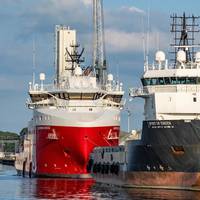
The OSV sector has concluded its second quarter earnings season, marking another quarter with strong profitability and favorable market conditions. However, negative oil market sentiment, with the Brent price down by 19% since the start of July, has impacted the overall oil services market with the wider PHLX Oil Service Index trading down 4% year-to-date. The OSV sector has returned 5% year-to-date at the time of writing, led by DOF’s 57% performance.Image courtesy Fearnley SecuritiesDayrates Continued to RiseTidewater was the first out of the blocks this earnings season…
MSI: Offshore Vessel Market Rebounds as Investors Reactivate Earlier Contracts
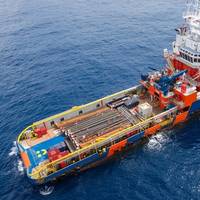
Strong confidence in the offshore vessel market has seen orders placed in the previous market upcycle re-activated to take advantage of renewed investor interest, according to a new report from Maritime Strategies International (MSI).In its third quarter offshore support vessel (OSV) sector report MSI notes that of the 17 vessels delivered to date in 2024, 13 were ordered more than a decade ago, leaving just over 50 vessels still pending from the previous upcycle, some of which…
Cyan Renewables to Buy MMA Offshore
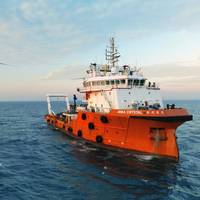
Singapore's Cyan Renewables, which operates vessels for offshore wind farms, said on Thursday it will buy its Australian peer MMA Offshore for A$1.1 billion ($725.67 million), marking the largest take-private deal in this space in the Asia Pacific region.MMA shareholders will receive A$2.70 per share in cash, a 36% premium over its 90-day average price, according to a joint statement from Cyan and MMA.Cyan, which is backed by infrastructure investor Seraya Partners, had initially offered A$2.60 per MMA share in March before sweetening the offer last month.MMA's shares have climbed almost 44% y
Bourbon, Opsealog Form Digital Partnership to Cut OSV Fleet Emissions
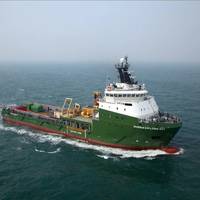
Enhanced fleet monitoring and data-driven optimization will be deployed across Bourbon’s global marine and logistics fleet of 104 vessels as part of partnership with Opsealog, aimed at boosting efficiency and reducing greenhouse gas (GHG) emissions.The multi-year agreement follows a six-month pilot on 25 Offshore Supply Vessels (OSVs), which demonstrated average monthly emissions savings of 45 to 50 tonnes of CO2 per vessel, according to French maritime services provider Bourbon.These…
Does an OSV Newbuild Boom Loom?
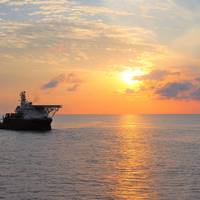
The market for offshore support vessels has experienced tremendous development in the last couple of years. And while we expect the market to continue its positive journey, we would argue that, at least on an overall basis, the market has already recovered to healthy levels at the time of writing.There are solid underlying fundamentals that are driving the increased vessel demand, chief among them is the increased offshore upstream investment on a global level. Overall, spending on exploration and production is set to increase roughly 45% from 2021 to 2025…
Subsea Vessel Market is Full Steam Ahead
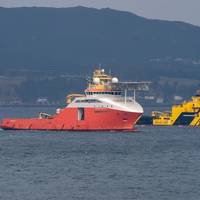
Since our last market update in the subsea space about a year ago both our current market view and forecasts have strengthened significantly.While the demand picture is looking solid and arguing for a strong multi-year upcycle, the supply side has also started to wake from its slumber albeit ever so slightly at the time of writing. Moreover, we register an interesting dynamic on the shipowner side, where everyone is trying to position themselves for the impeding market boom.Please note that vessel definitions and abbreviations in this part of our industry can vary…
The APAC Offshore Market: Riding the Wave of Success into 2024 and Beyond

2023 was the first year of real recovery for owners in the offshore supply market and yet we have barely skimmed the surface of what’s to come.The market is still on an upward trajectory with charter rates accelerating month-by-month, availability changing day-by-day, leading to earnings doubling and, in some segments, tripling since the lows of 2020. Current rates will remind many of the glory days of pre-2014 with the demand for OSVs projected to remain elevated for years to come.In general…
Will 2024 be the Year of AHTS Recovery?
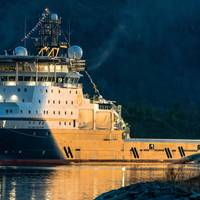
As 2023 is drawing to a close we would once again invite the readers of Offshore Engineer Magazine to gaze into our crystal ball to see what 2024 might have in store for the offshore support vessel industry. Before diving straight into our forward-looking sentiments however, it is important to address some of the main trends in the year that past as these lay the foundation for the year to come.Continuing the market development from the year before, 2023 very much advanced the ongoing recovery for offshore support vessels further.
Aker Capital Takes Larger Stake in Solstad Offshore
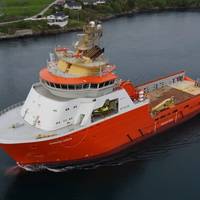
Aker Capital AS has acquired 8,240,000 shares in Solstad Offshore ASA, at an average price of NOK 48.45 per share.Following the transaction, Aker Capital holds 27,089,493 shares in the company, corresponding to an ownership interest of approximately 32.9%.Aker Capital AS is 100% owned by Aker ASA and represented on the board of the company by Frank Ove Reite. Frank Ove Reite also owns 356,509 shares in the company, through Fausken Invest AS.In its Q3 market update, Solstad was positive about demand for offshore services, both from oil and gas and renewables.
PSV Retrofitted for Hybrid Operation
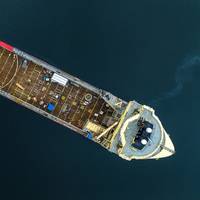
Skansi Offshore’s platform supply vessel (PSV), Kongsborg, has had a battery hybrid solution installed that is designed to reduce greenhouse gas emissions and fuel consumption.SEAM delivered, and was the system integrator of, its hybrid solution, the e-SEAMatic® BLUE. The 1800kVA/620kWh system was installed in a dedicated pre-built deckhouse, complete with necessary auxiliary systems – significantly reducing the installation time onboard the vessel.The objective of this integration was twofold: a significant reduction in fuel emissions…
Report: Five Digitalization Steps that can Drive OSV Fuel Efficiency
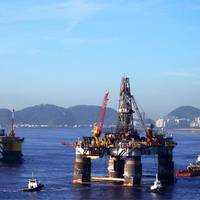
A new white paper published by maritime performance management company Opsealog sets out five practical steps that OSV operators can take to secure improvements in fuel efficiency through better data analytics.Existing data that companies are already collecting, for example in mandatory logbooks, can enable significant vessel and fleet efficiency gains, says Opsealog.With case studies drawn from Opsealog’s eight years of experience across the world’s offshore markets, the research highlights how having detailed digital monitoring in place helps owners…
The Resurgence of the OSV Industry: From Trough to Triumph
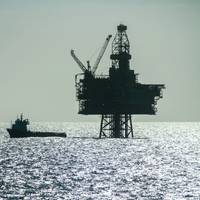
The offshore supply vessel industry has weathered a tumultuous decade characterized by a prolonged trough that tested the resilience of vessel owners. However, the tides have turned, and the industry is now experiencing a strong and much-awaited revival.The offshore supply vessel industry has weathered a tumultuous decade characterized by a prolonged trough that tested the resilience of vessel owners. However, the tides have turned, and the industry is now experiencing a strong and much-awaited revival.While long seen as a derelict industry by investors…


